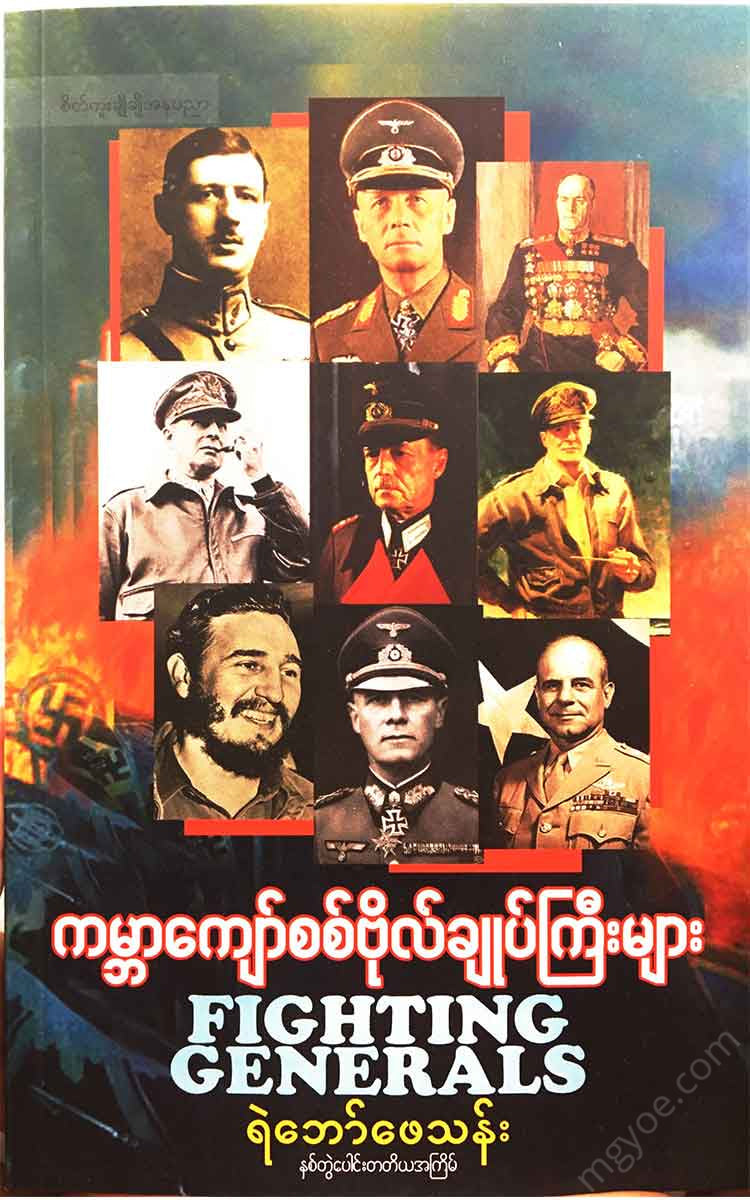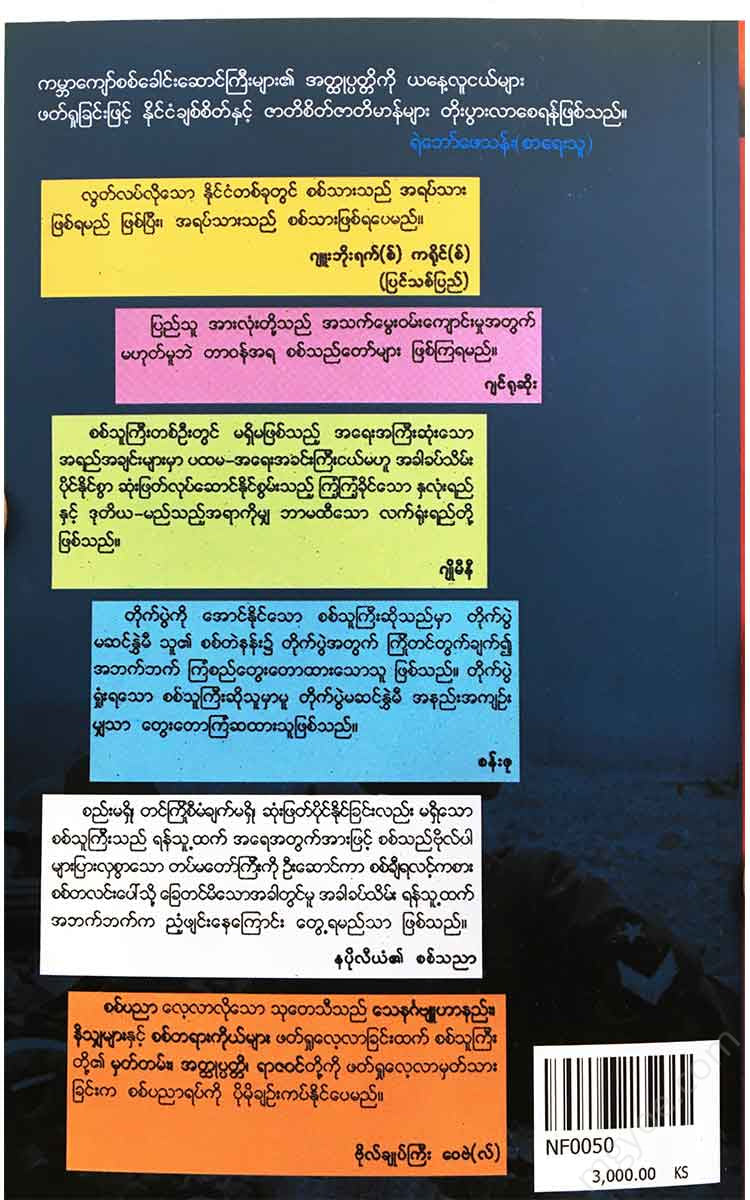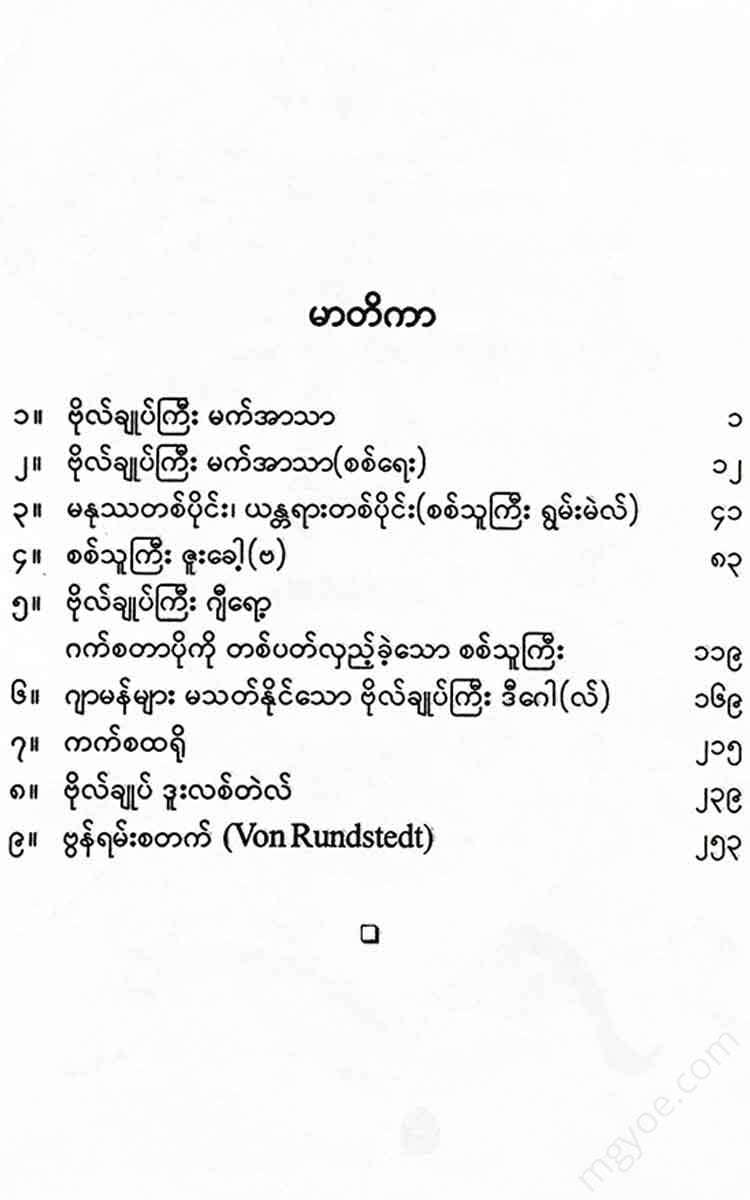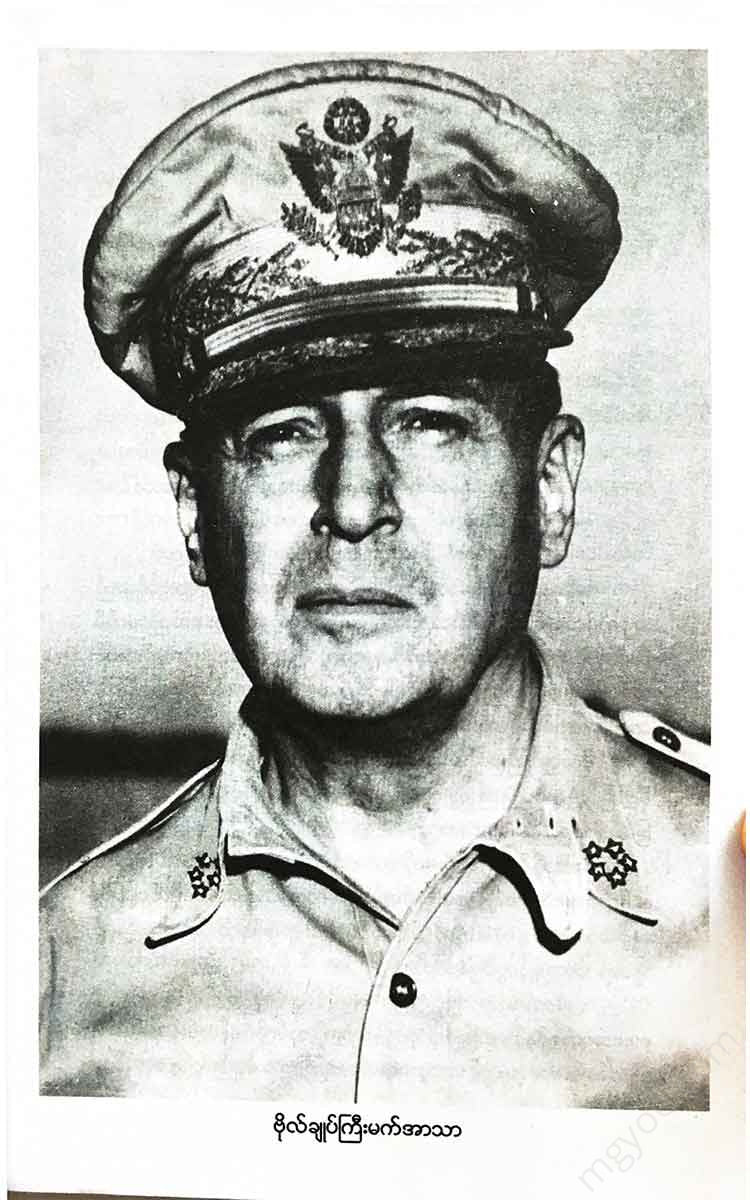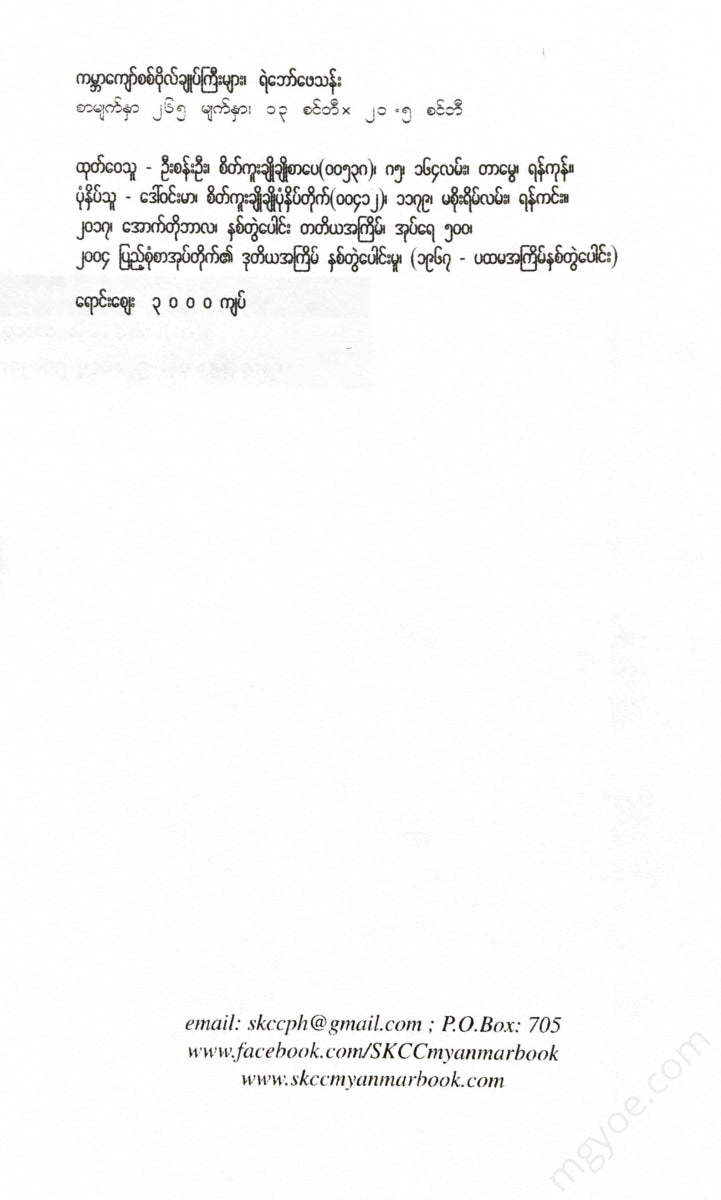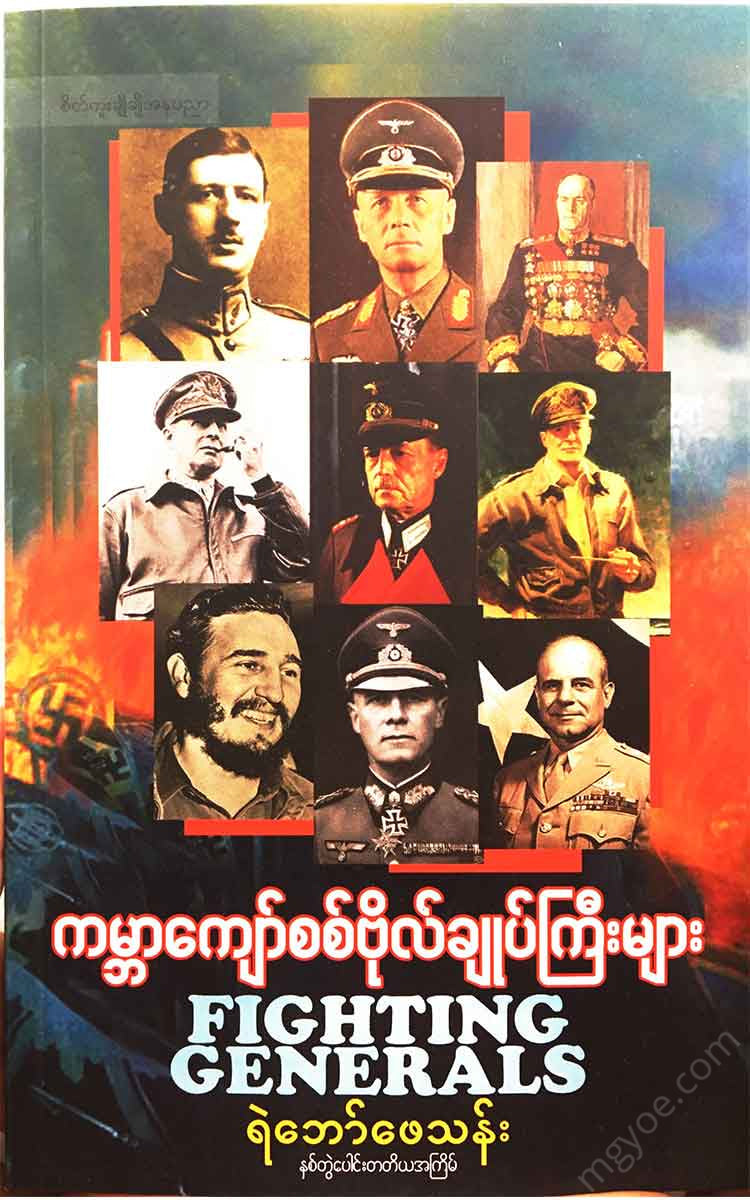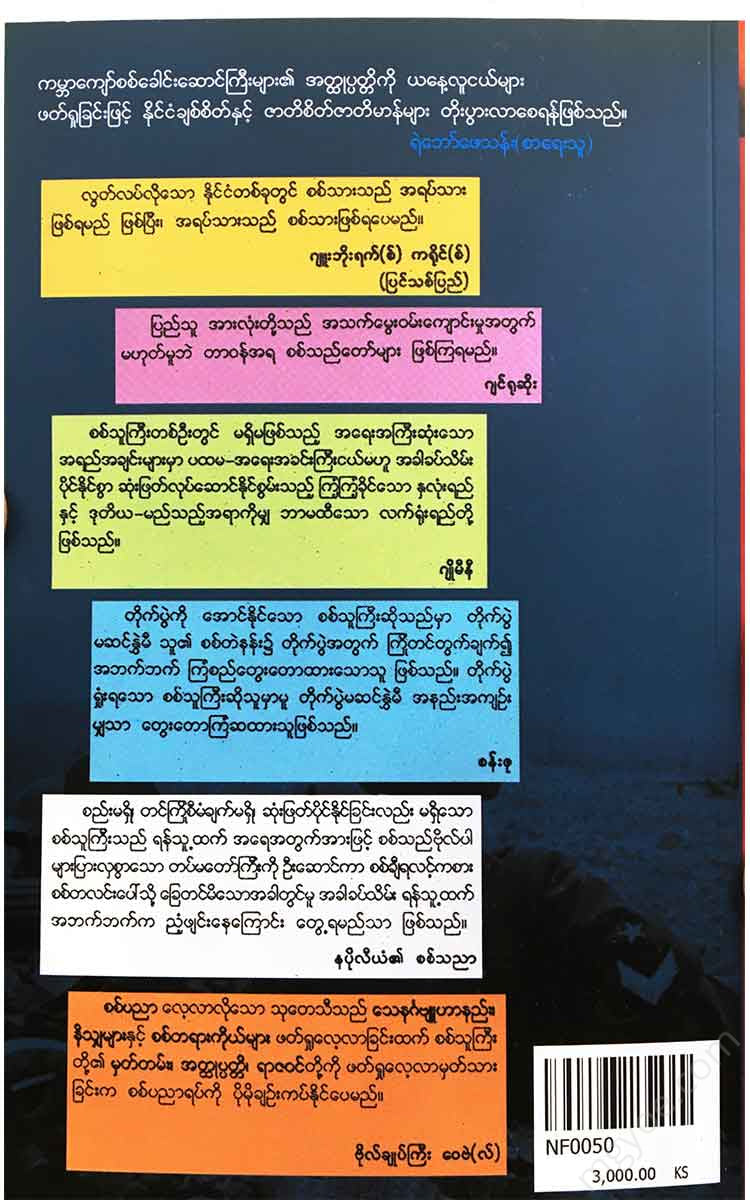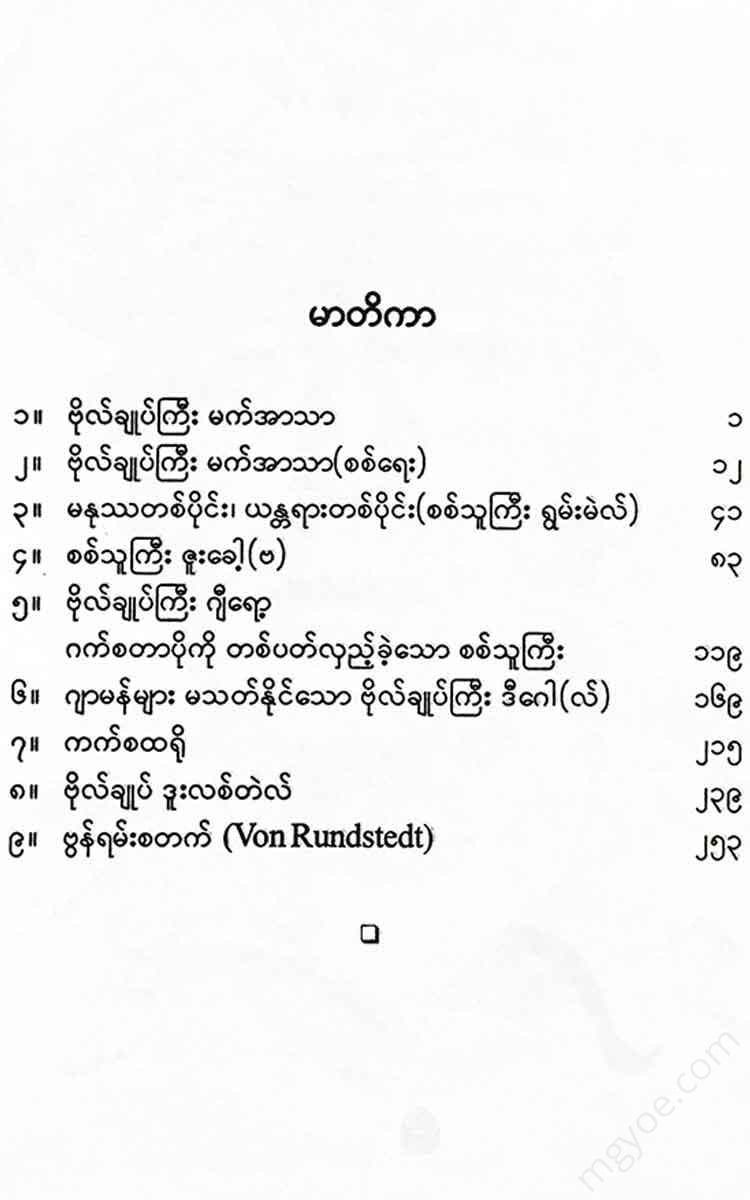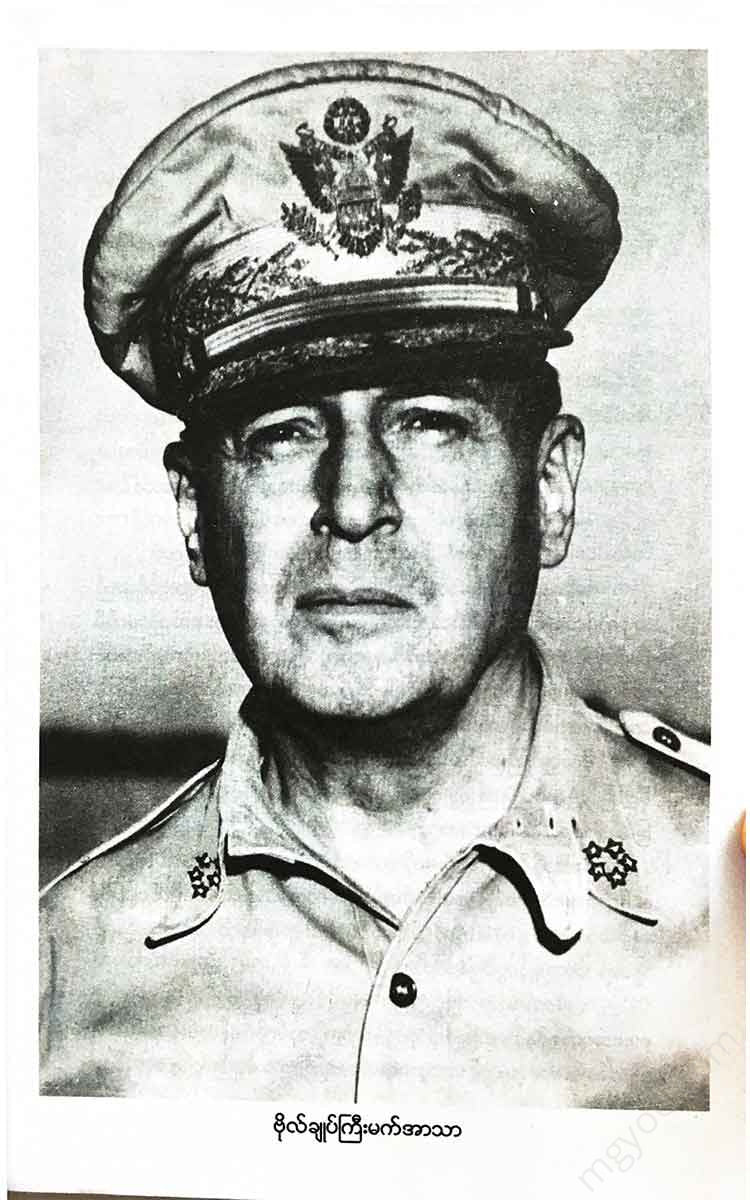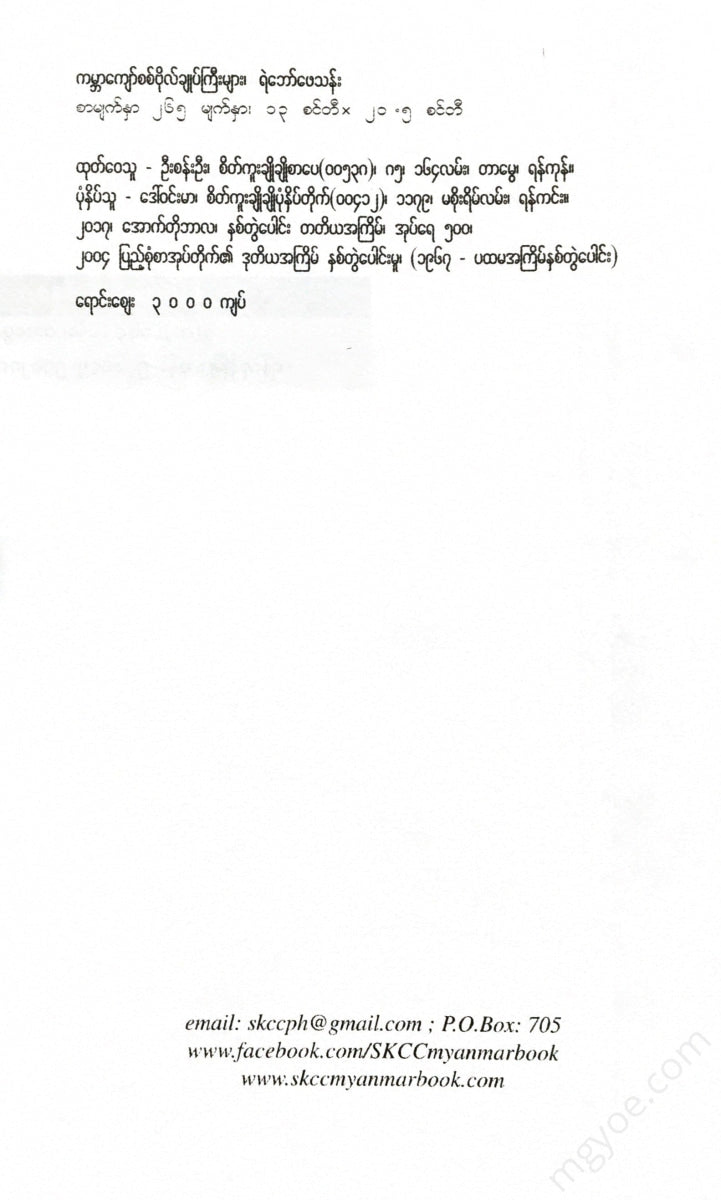စိတ်ကူးချိုချိုစာပေ
Comrade Pe Than - World-famous generals
Comrade Pe Than - World-famous generals
Couldn't load pickup availability
General MacArthur
- The general who did not lower the flag until the very end...
-A general who doesn't dodge enemy bullets?
Among the many generals in the US military, only one general was ever attacked by modern weapons such as machine guns and bombs, as well as by bows and arrows. That general was none other than General Douglas MacArthur.
General MacArthur was attacked at close range by Japanese aircraft, as well as by archery from Indian tribesmen.
At the time when General MacArthur was attacked by Indians, General MacArthur's father, Colonel MacArthur, was in control of a territory held by Indians in New Mexico.
From time to time, the white settlers, the great farmers who had ventured into the area to work the wild lands, to eat and to work the livestock, were afraid of the invading Indians on one side and the persecution of the gunmen on the other. It was a time when MacArthur's father, Lieutenant Colonel MacArthur, was responsible for the security and administration of the area.
And so, one day in 1884, they attacked the small fort where Colonel MacArthur's regiment was stationed.
At the time, his son MacArthur was only four years old. When he heard noises outside the fort, he could not control his natural curiosity and, struggling against the grasp of the red-haired woman he had hired as a nanny, ran into the fort's courtyard.
As they entered the fort's opening, an arrow that had come through the new fort's blocks passed between MacArthur's head and one of his hands.
If MacArthur had arrived at the empty fort even a split second earlier, he would have been killed at that moment.
Thus, MacArthur's childhood grew up amidst the cries of war and the sounds of gunfire.
Children, like other children, did not grow up listening to fairy tales, but only heard stories of great wars and adventures.
As a child, MacArthur often looked at the C.M.H. Medal, the highest decoration for a soldier in the United States, which his father had received during the Civil War, and repeatedly vowed that one day he would receive it, just like his father.
MacArthur's childhood dream was realized half a century later. He won the medal at the Battle of Baton Rouge, where MacArthur fought bravely against an enemy ten times his size, a feat that would make the American people proud.
MacArthur was not one to be taken lightly, no matter how close his friends were, but treated them as if they were strangers. This gentle demeanor earned him the respect of some of his friends. Even among his close friends, he rarely called anyone by his first name. Even his wife often addressed him by his rank, General.
Captain Allen Putnam, who had studied with MacArthur for a year at West Point, described MacArthur as a man of great social skills and a man who carefully chose his words, from the structure of his sentences to the use of his own words.
MacArthur was a great soldier, both brave and brave. But he was not a hard man, but a gentle man in body and speech, and a gentle soul. While attending West Point, Ellen Puck and MacArthur went to see the play "The Musician," starring David Warfield. When Ellen Puck turned to MacArthur at the end of the play, he said that he could not hold back his tears and was crying.
When MacArthur arrived in the Philippines, the weather was hot and boring, and like other junior officers, he often had thoughts of drinking, dancing, and going out to have fun. When he felt uneasy, MacArthur would stand in front of a full-length mirror and, with the manner of a sergeant reprimanding a soldier, examine his own reflection in the mirror and speak admonishing words to him.
MacArthur was the highest-scoring cadet at the United States Military Academy at West Point. It is said that no cadet at the academy has ever broken MacArthur's record.
MacArthur became the youngest general in the United States Army when he was promoted to the rank of general. He was also the first American general to be appointed a four-star general twice.
He was also the first young person to serve as the principal of West Point, a military academy that rarely appoints young people as principals.
Throughout the history of the United States, only soldiers, commanders, and generals who were brave and courageous in every war have won the United States' military medals. However, it is said that no American soldier has won more military medals than MacArthur. Not only the medals awarded by his own country, but also the medals awarded by the governments of ten other countries are so numerous that it is said that MacArthur has no place to put them on his chest.
In addition, MacArthur had other unique distinctions. These were that MacArthur was the first American general appointed by the Philippine government; the first American general to command all three branches of the Allied forces: the Army, Navy, and Air Force; the youngest and highest-ranking general since General Grant; the first general to receive the C.M.H. (C) Medal, the highest military decoration in the United States; and the highest-paid military advisor to the Philippine government.
He is the youngest Chief of Staff in the United States Army and the only Chief of Staff to be re-elected for a second term after completing his four-year term.
Ultimately, if we ask whether there are, or have ever been, any outstanding officers like MacArthur in the history of the American military, the answer must be no.
That's right. There is only one General MacArthur in the US Army like MacArthur.
During World War I, when the American army began its advance into the French city of Seminyak, MacArthur was seriously ill. Despite his illness, he was determined to lead the 84th Regiment into battle the next day. So MacArthur called two of his men and ordered them to carry him to the front line in an ambulance until the battle was over. Thus, MacArthur fought from the stretcher, even though he was ill.
That is why the late General Johnson criticized him, saying, "General MacArthur was never a man who would die of a disease in bed."
MacArthur was always on the front lines during World War I, leading his men in everything from small battles to small company battles, making his name a household name among the soldiers. On one occasion, MacArthur led a small platoon to attack an enemy tank, risking his life to do so.
Because of this risk-taking attitude, MacArthur was exposed to poison gas numerous times during World War I and twice received fatal injuries.
For this sacrifice, MacArthur was decorated with 13 medals and 7 medals of valor and military merit. These medals and medals were given for bravery. Therefore, in 1908, the Secretary of the United States Department of War, Newton D. Baker, declared that "MacArthur was the number one general of the United States in World War I."
During World War I, MacArthur fought alongside his men on the front lines, never taking up arms.
The only weapon he wielded in battle was a small riding club.
MacArthur believed that by boldly marching ahead of his troops without taking up arms in such battles, he could boost the morale of his men, and so in every battle he participated in, he would demonstrate his skill and courage, setting an example for his men.
" If you want your soldiers to fight fearlessly, you must stand in front and fight fearlessly yourself," was MacArthur's military philosophy.
This belief led MacArthur to continue working calmly in his office, not taking down the flag that was raised in the headquarters compound, despite the Japanese air raids on Manila.
The flag flying in the air, pointing to the location of the headquarters, prompted Japanese planes to approach and bombard MacArthur's headquarters with heavy fire.
However, MacArthur did not flee the headquarters office for safety, fearing that the soldiers would lose their morale, nor did he remove the flag that was waving at Japanese planes from inside the headquarters, but continued to work calmly.
General MacArthur often said, "Only those who are not afraid to die are worth living."
One of MacArthur's unique qualities was that he constantly kept his troops motivated by taking the lead. If you examine the morale of the troops under MacArthur's command, you will find that they were always upbeat.
Colonel Carlos Romulo, who wrote the book "I Saw the Philippines Fall" and was General MacArthur's personal aide, said that General MacArthur was in Bataan during the fierce fighting.
